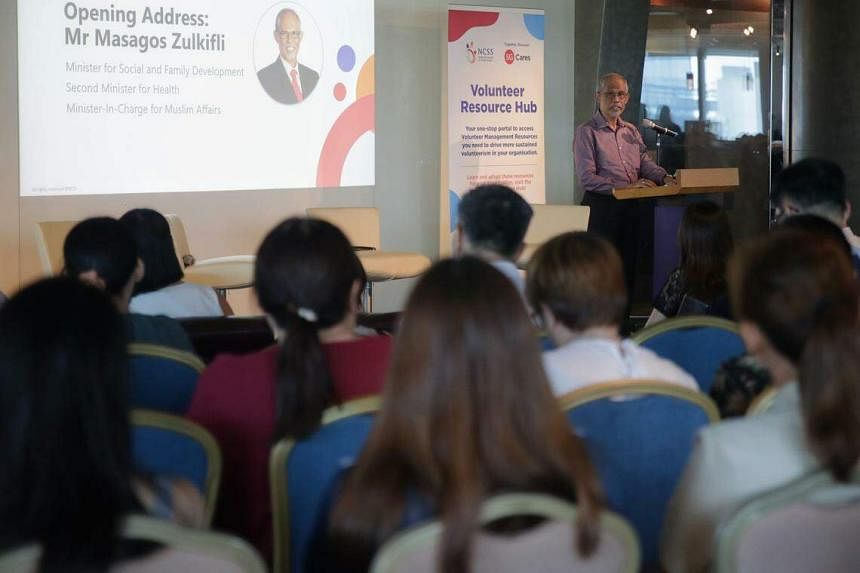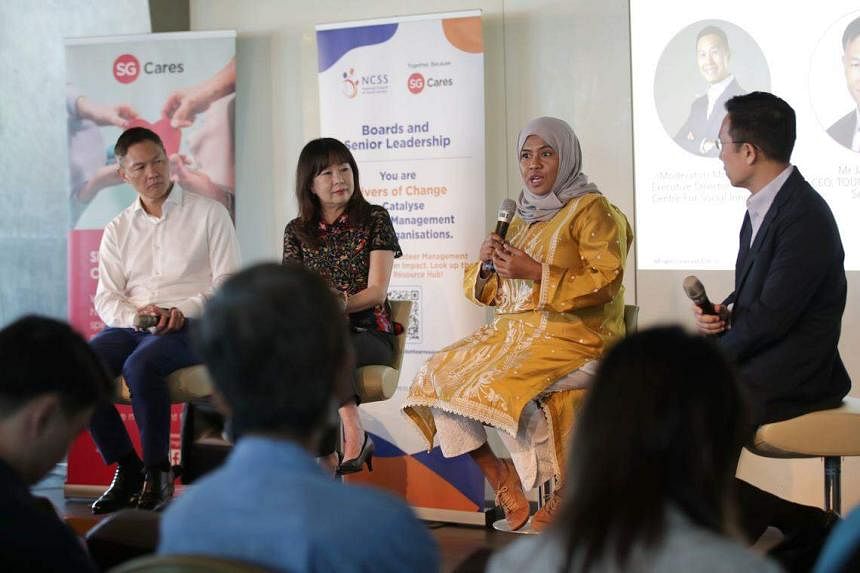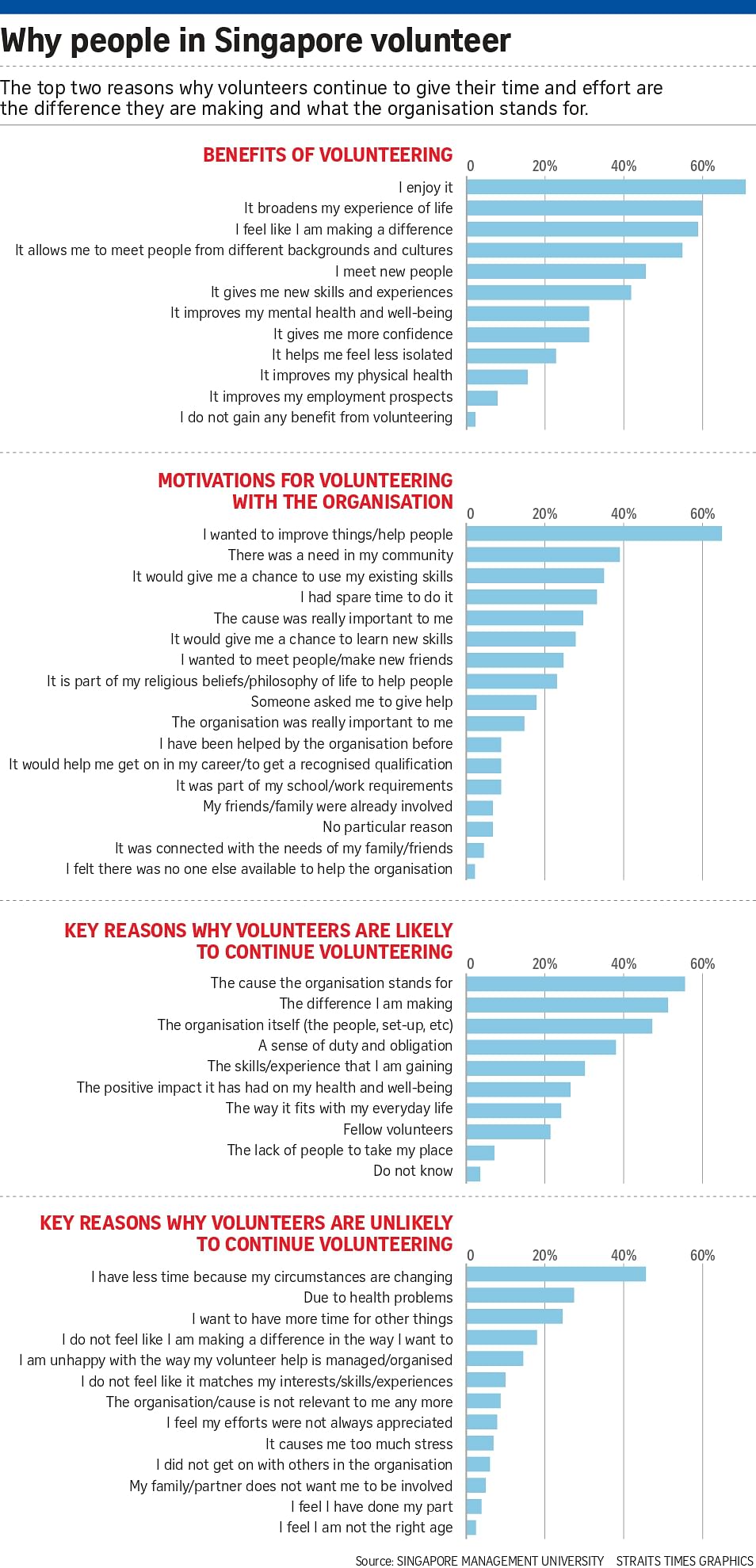SINGAPORE – The first study on the volunteer experience here has found that the top two reasons why volunteers continue to give their time and effort are the difference they are making and because they believe in what the organisation stands for.
The study by the Singapore Management University’s Lien Centre for Social Innovation and the National Council of Social Service (NCSS) polled 180 volunteers from 112 social service agencies.
The study was done to help enhance the volunteering experience in the social service sector and improve volunteer retention rates.
NCSS chief executive Tan Li San said: “Volunteers augment the manpower capacity in the non-profit sector.
“This volunteer experience study... provides us with valuable data and insights on what motivates different groups of volunteers.”
She said this helps NCSS to better support non-profit organisations to strengthen volunteer management practices, enabling volunteers to better support those in need.
It found that 62.7 per cent of the volunteers cited their desire to improve things or to help people as the reason they first helped at the organisation.
And 51.1 per cent stated that a key reason for continuing to volunteer is the difference that they make.
A total of 56.7 per cent said the main reason they continued volunteering was their belief in the cause the organisation stood for.
The most common reason to stop volunteering was the lack of time due to changing circumstances, which was cited by 43.9 per cent of participants.
The second reason was health problems, cited by 26.7 per cent.
Of those polled, about four in 10 were aged between 25 and 44, while 34.6 per cent were aged 45 to 64.
Two-thirds of the volunteers were female, and two-thirds of volunteers were university-educated.
The study found that young adults were more likely to feel that volunteering improved their employment prospects as it allows them to improve and gain new skills and experiences.
But they were also more likely to stop volunteering if they felt volunteering was causing them too much stress or negatively impacting their studies or work.
The study said this finding highlights the importance of managing the expectations of young adult volunteers, ensuring that volunteering is flexible and to clearly communicate the time commitment needed from volunteers.
The study recommended that groups pay attention to volunteers’ life stages and improve the employment prospects of young adult volunteers, for instance.
This can be done through networking opportunities with senior management, providing training and leadership opportunities, and allowing them to run their own committees and programmes.
Speaking at the release of the study results at the Singapore Management University on Monday, Minister for Social and Family Development Masagos Zulkifli said that compared with a decade ago, social service agencies (SSAs) today place more emphasis on volunteer management practices.
He also noted that there is a rise in skills-based volunteerism, where people and companies want to use their skills to help out.
He added: “In addition, volunteers today want to be meaningfully engaged, and most importantly, they wish to see impact.
“As a society, we are moving away from ad hoc volunteering to more deliberate and sustained efforts to uplift those in need.”
He stressed the need for SSAs to improve their volunteer management to enable them to scale up their programmes and serve more beneficiaries.

In a panel discussion at the event on Monday, leaders of SSAs said volunteers have a special bond with the people the agencies serve.
Mrs Kim Lang Khalil, chief executive of HCSA Community Services, said some volunteers can do what staff cannot as staff have to oversee administration, for instance, keeping rules at its halfway house.
Volunteers can gather feedback from residents to help HCSA to improve its services, she added.
Mr James Tan, chief executive of Touch Community Services, said the organisation has a programme which enables volunteers to plan camps, tuition and character development activities for vulnerable children.
Six employees manage 400 youth volunteers under the programme.
The panellists said organisations should also enable clients to volunteer if they wish as it is a way of empowering clients, some of whom want to pay forward the help they receive.
Ms Saleemah Ismail, chief executive of New Life Stories, said a formerly incarcerated father who worked as a delivery rider wanted to help HCSA deliver food to beneficiaries during the weekends.
Mr Masagos said that beyond generating findings, the Lien Centre for Social Innovation and NCSS translated the study into a useful resource for SSAs.
They developed a framework on the key elements of a quality volunteering experience and provided practical steps that agencies can adopt.
“Volunteers bring their unique skill sets and energies; SSAs have deep knowledge of the communities they serve in and understanding of the needs of these communities.
“It is better that we work together to ensure meaningful and sustained impact,” he added.



